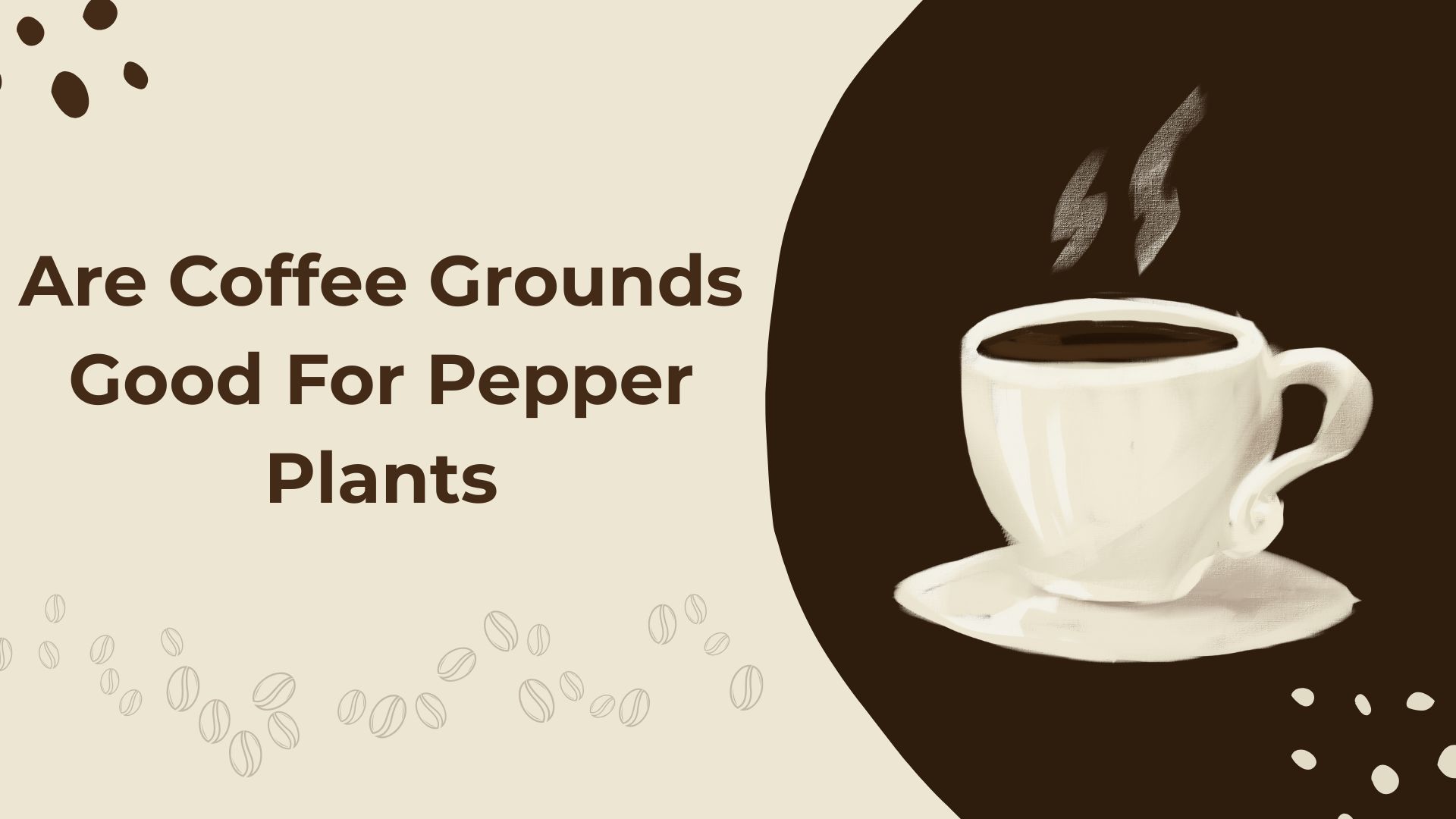Alright, let’s talk about gardening. Yes, coffee lovers, you will enjoy this. Coffee grounds are likely to accumulate if, like me, you drink, oh, I don’t know, three cups of coffee every day (don’t judge me!). Naturally, you may be asking if pepper plants can benefit from coffee grounds. After all, we’ve all heard about composting food leftovers and such. However, coffee grounds? Regarding peppers? Let’s investigate whether your leftover morning brew can genuinely assist your pepper kids survive in the garden, even though the idea seems a little too good to be true.
Table of Contents
What’s Actually in Coffee Grounds?
It’s useful to know what’s in our espresso leftovers before we toss them in the ground. A few essential elements are abundant in coffee grounds:
Nitrogen is crucial for the growth of leaves.
- Potassium
- Phosphorus
- The mineral magnesium
- A tiny quantity of calcium
For those who are unfamiliar with gardening terminology, this indicates that they have a respectable NPK profile, which stands for nitrogen, phosphorus, and potassium, but not in extremely high concentrations. Phosphorus and potassium promote the production of flowers and fruit, which is precisely what you want when growing peppers, while nitrogen aids in the development of healthy leaves.
On paper, then, sure! There are nutrients in coffee grounds that can help your pepper plants. There’s a catch, though.
The Benefits: Why Coffee Grounds Can Be Good for Pepper Plants
1. Slow-Release Fertilizer
Over time, used coffee grinds release nutrients into the soil since they decompose slowly. Instead of giving your pepper plants too much at once, this can help them eat more slowly. Furthermore, who doesn’t enjoy free fertilizer?
2. Improved Soil Structure
Coffee grinds contribute to the soil’s improved texture. They provide organic materials that keeps the soil loose when combined with compost or topsoil. This implies improved drainage and aeration, two factors that peppers enjoy.
3. Worms Love ‘Em
Guess what? Earthworms are the best buddy of any gardener. They adore coffee grinds. Increased worm populations also contribute to better nutrient availability and natural soil aeration. Pepper plants thrive when there are more worms in the soil.
4. Can Deter Some Pests (Kinda)
Coffee grounds are said to repel pests such as ants, slugs, and even cats—not the cuddly sofa variety, but the ones that destroy gardens. Although the outcomes differ, it is somewhat true. Some pests dislike caffeine, and coffee grounds can be abrasive. Therefore, it’s a pleasant bonus even though it’s not a guarantee.
The Catch: Why You Shouldn’t Overdo It
This is when things start to get a little complicated. Coffee grinds can be wonderful, but too much of anything is just nasty. For example, you wouldn’t use Red Bull to water your peppers every day, would you? (Hopefully not.)
1. Too Much Nitrogen
If your pepper plants receive too much nitrogen from too many coffee grounds, they may grow large, green, bushy plants with few peppers. We do not want that. Showy foliage is not what we want; we want fruit.
2. Acidity Concerns (Sort Of)
The acidity of coffee grounds is a common concern. The truth is that used coffee grinds have a pH that is more or less neutral because most of the acidity is removed during brewing. Large additions, however, may still somewhat change the soil, and peppers prefer slightly acidic soil (pH 6.0 to 7.0) over neutral soil. Thus, moderation is essential.
3. Can Compact Soil If Used Alone
Coffee grinds can clump together and produce a crust if you simply pour them onto your soil without mixing them up. Both air and water, which are essential for strong root development, can be blocked by that crust.
So… How Should You Use Coffee Grounds for Pepper Plants?
The exciting part is here: some feasible, realistic gardening tips that you can implement.
Mix Coffee Grounds Into Your Compost
This method of using coffee grounds is arguably the safest and most efficient. Due to their high nitrogen content, they are regarded as a “green” compost material; therefore, they should be balanced with some “browns,” such as shredded paper, dry leaves, or straw. This compost can be used as a soil amendment or mulch that is rich in nutrients once it has decomposed.
Sprinkle Lightly Around Plants
Some used coffee grounds can also be spread around the base of your pepper plants. Just enough to softly cover the earth, not a mountain. To prevent it from crusting over, mix it into the top inch of soil.
Make a Liquid Coffee Ground Tea
Coffee grinds are used to make “compost tea,” which some people swear by. To water your plants, simply soak a cup or two of used coffee grinds in a pail of water for a day or two. It’s a diluted method of providing a small nutritional boost.
Final Thoughts
So, can pepper plants benefit from coffee grounds? The response is… yes, but under some restrictions. They can provide slow-release nutrients, improve the health of your soil, and even provide some pest control. However, you shouldn’t just throw all of the leftover coffee pot contents into your garden beds. Use them gently, combine with compost, and monitor the plants’ reactions.
Additionally, you’re contributing to the environment and preventing waste from ending up in landfills. I think that’s a win-win situation.
